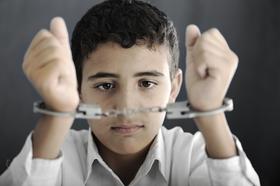For the 2025 school year, there is 1 public high school serving 231 students in 73031, OK.
The top ranked public high school in 73031, OK is Dibble High School. Overall testing rank is based on a school's combined math and reading proficiency test score ranking.
Public high school in zipcode 73031 have an average math proficiency score of 10% (versus the Oklahoma public high school average of 21%), and reading proficiency score of 34% (versus the 38% statewide average). High schools in 73031, OK have an average ranking of 2/10, which is in the bottom 50% of Oklahoma public high schools.
Public high school in zipcode 73031 have a Graduation Rate of 85%, which is more than the Oklahoma average of 79%.
The school with highest graduation rate is Dibble High School, with 80-89% graduation rate. Read more about public school graduation rate statistics in Oklahoma or national school graduation rate statistics.
Minority enrollment is 35% of the student body (majority Hispanic), which is less than the Oklahoma public high school average of 55% (majority Hispanic and American Indian).
Best 73031, OK Public High Schools (2025)
School
(Math and Reading Proficiency)
(Math and Reading Proficiency)
Location
Grades
Students
Rank: #11.
Dibble High School
(Math: ≤10% | Reading: 30-39%)
Rank:
Rank:
4/
Bottom 50%10
22092 Old Town 1st
Dibble, OK 73031
(833) 324-1173
Dibble, OK 73031
(833) 324-1173
Grades: 9-12
| 231 students
Frequently Asked Questions
What are the top ranked public high schools in 73031, OK?
The top ranked public high schools in 73031, OK include Dibble High School.
How many public high schools are located in 73031?
1 public high schools are located in 73031.
What is the racial composition of students in 73031?
73031 public high schools minority enrollment is 35% of the student body (majority Hispanic), which is less than the Oklahoma public high schools average of 55% (majority Hispanic and American Indian).
Recent Articles

School-to-Prison Pipeline Persists Despite Local, State and National Efforts
Inadequate funding and resources for schools, harsh zero-tolerance discipline policies, police presence in public schools, and de facto segregation continue to create school environments in which poor and minority students have little chance of succeeding. The result is a continuation of the school-to-prison pipeline that has been commonplace in the American education system for decades, despite federal, state and local efforts to curb the problem.

How the Arts Benefit Your Children Academically and Behaviorally
Often underfunded in the past, the arts are gaining a resurgence in support as research shows benefits for children academically, along with improvements in behavior and attendance.

February 05, 2025
Understanding the U.S. Department of Education: Structure, Impact, and EvolutionWe explore how the Department of Education shapes American education, from its cabinet-level leadership to its impact on millions of students, written for general audiences seeking clarity on this vital institution.
